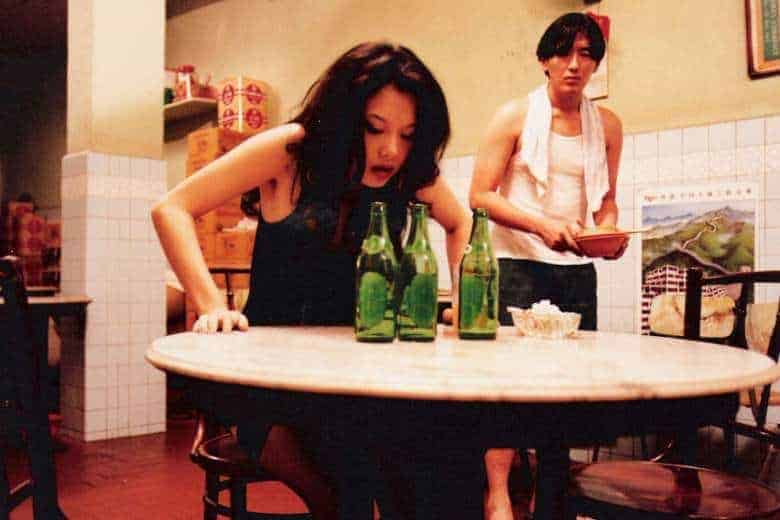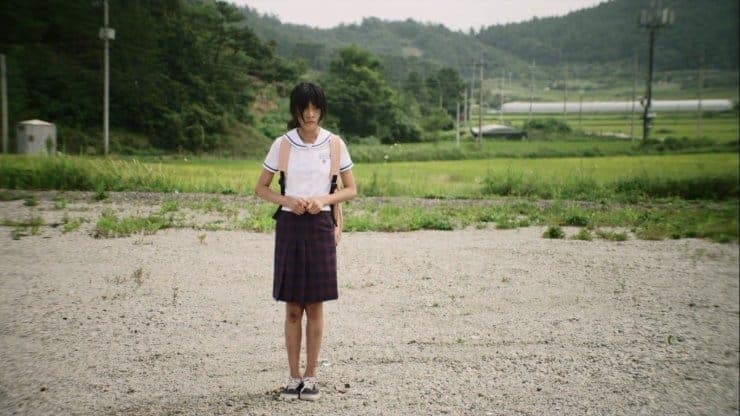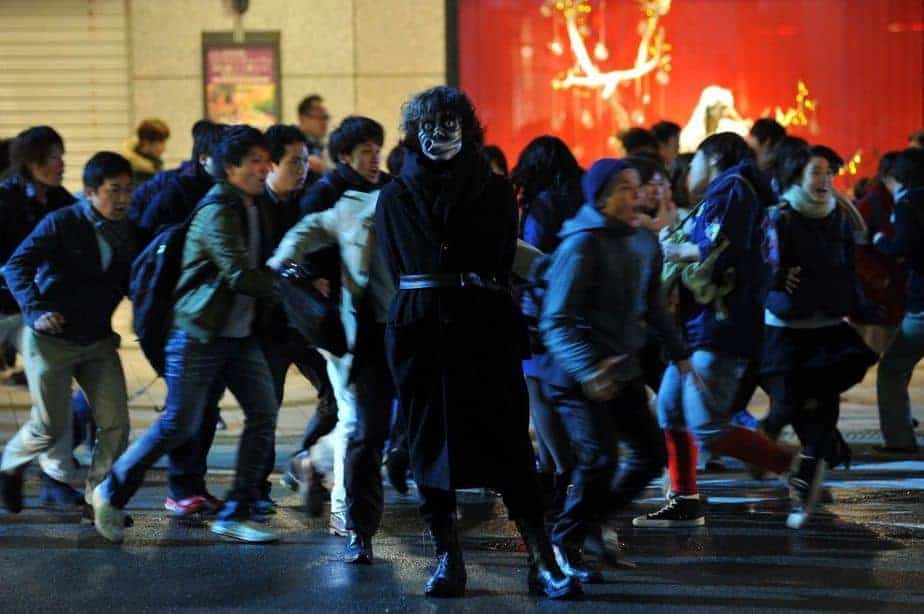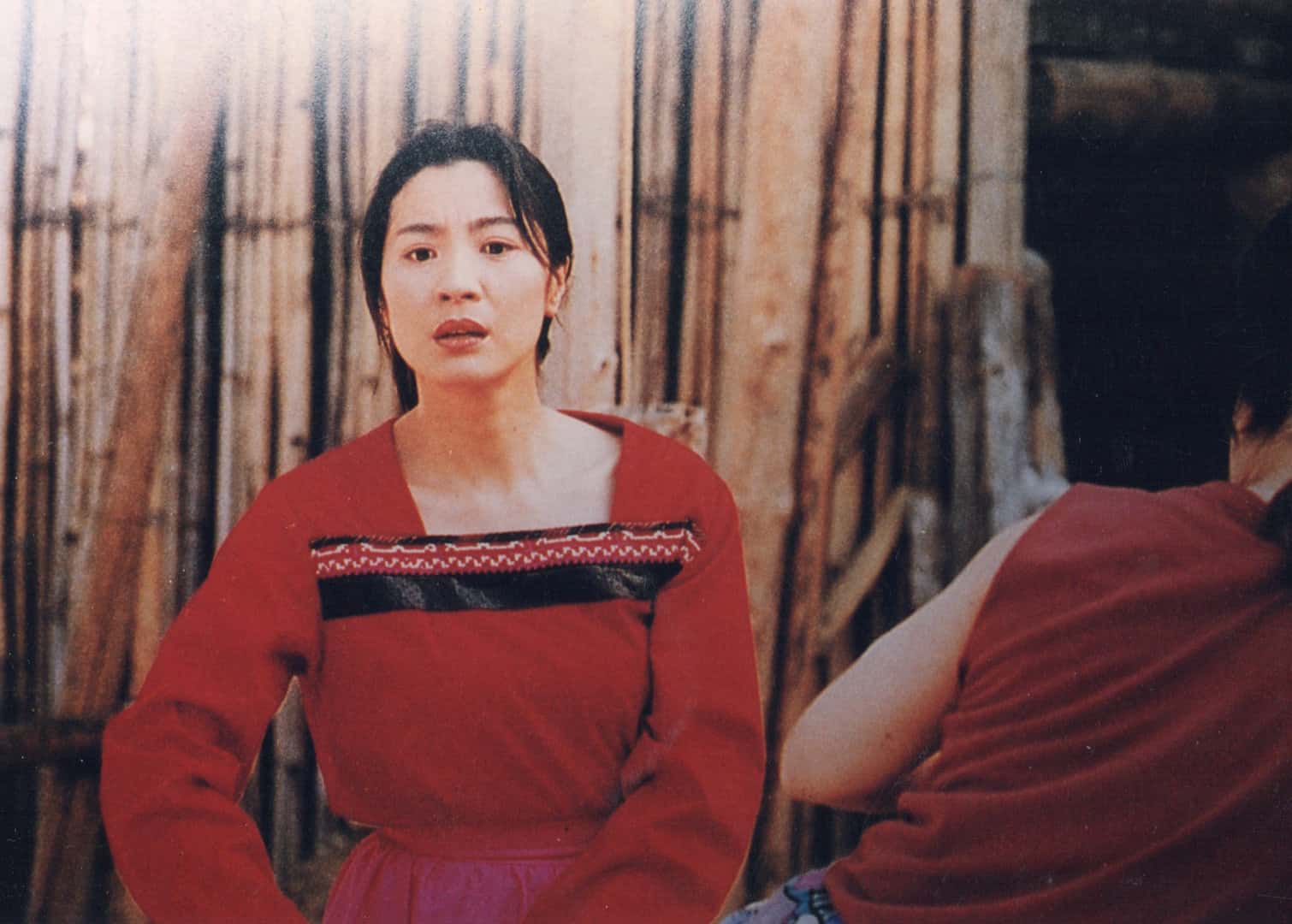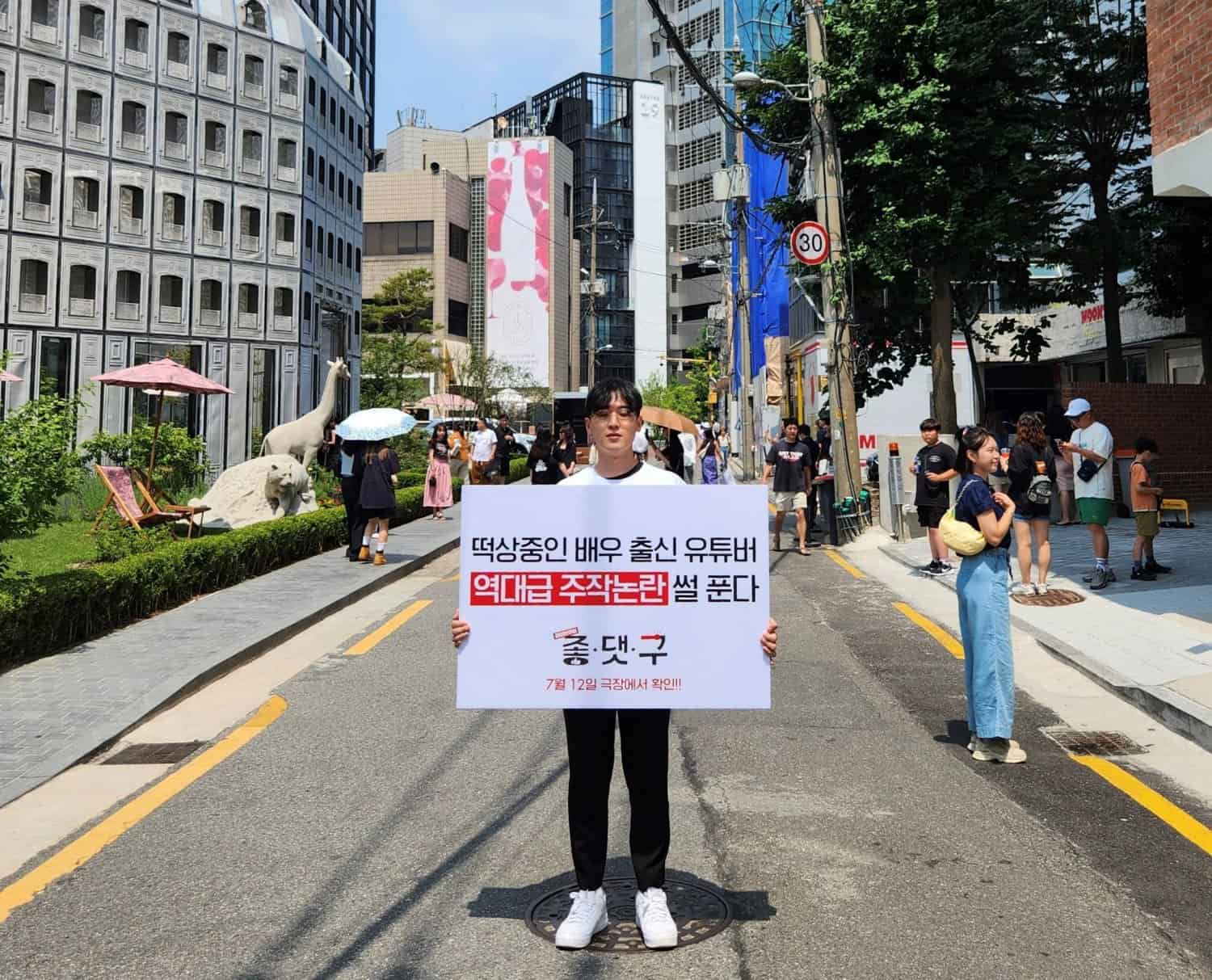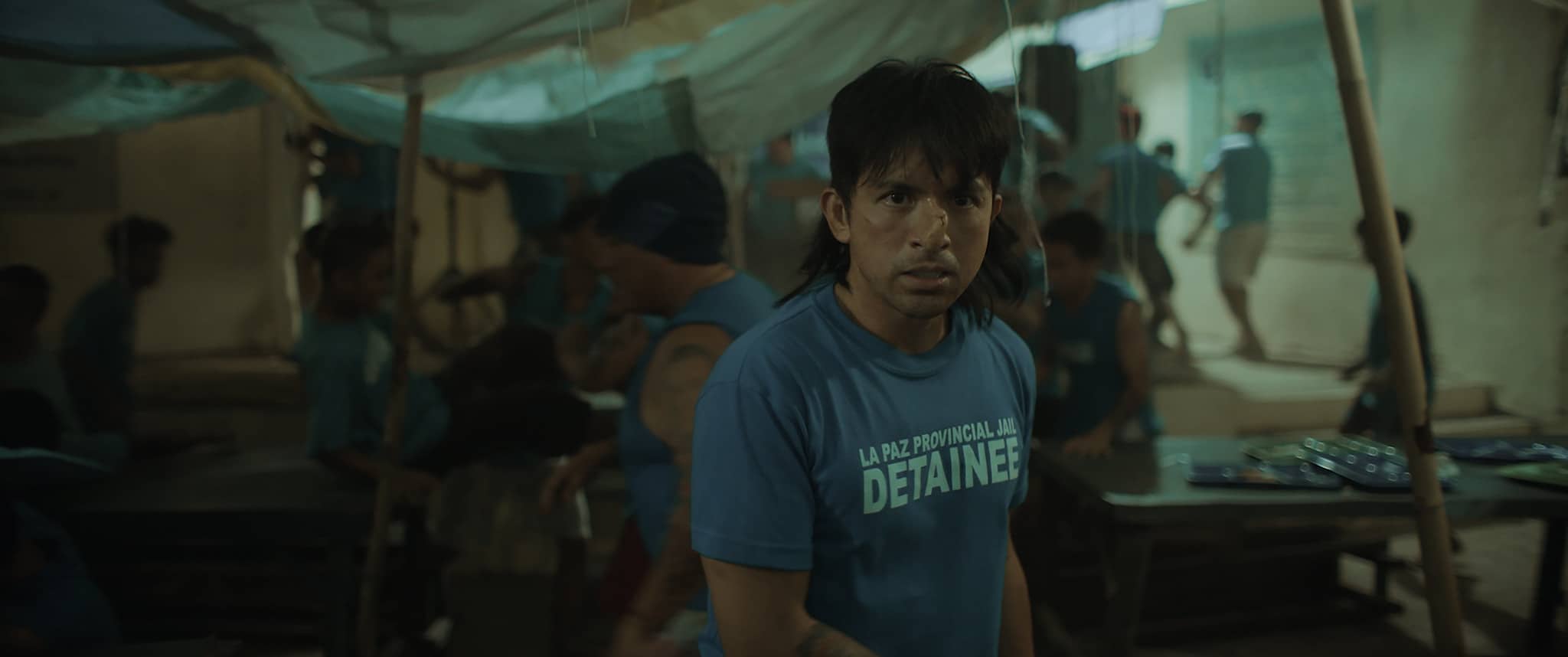In “Mee Pok Man” director Eric Khoo reminds us vividly that love is often inscrutable and hard to get. The 1995 debut film of the Singaporean director was torn apart by critics on its release. Nowadays more and more scholars tend to discover its importance for Singapore's cinematic history. Enough reasons to take a closer look and to find out how good, or bad, “Mee Pok Man” really is.
“Jiseok” is screening at Vesoul International Film Festival of Asian Cinema
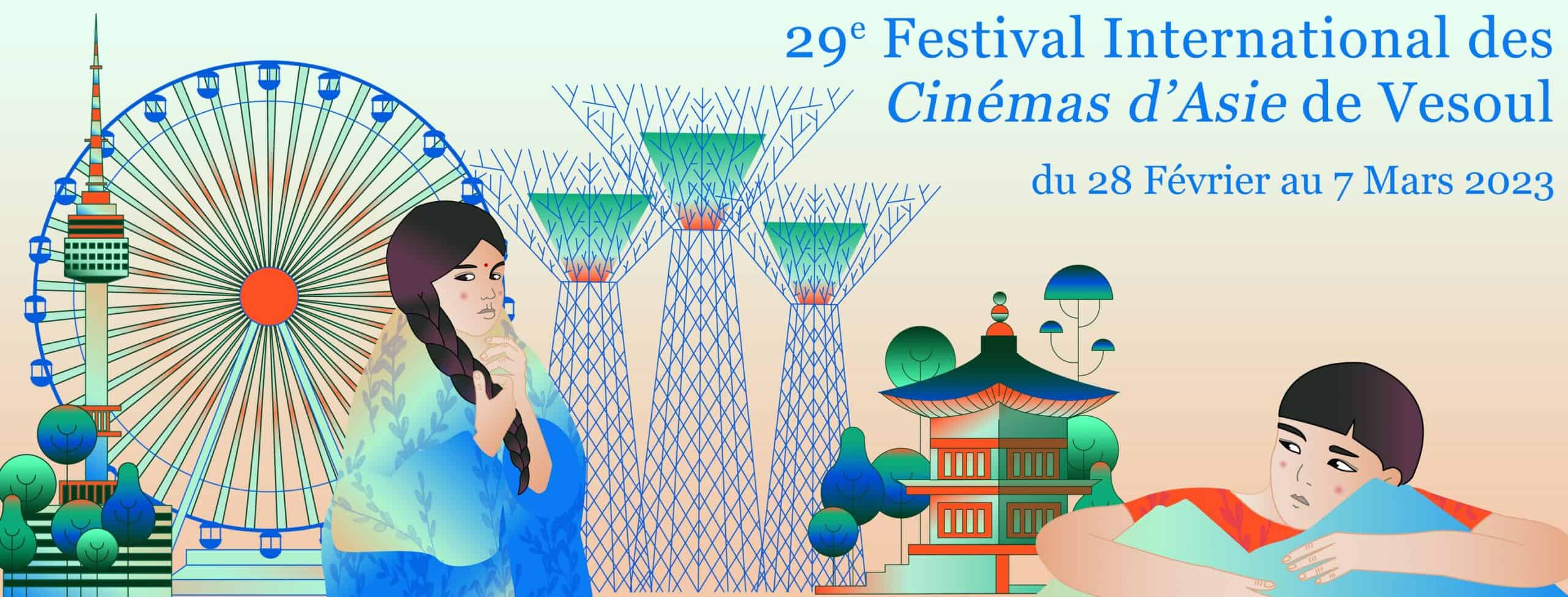
The story takes place in mid-90s Singapore. A city firmly in the hands of consumerism. Dreaming of a life in luxury, Bunny sells her body on the street. During breaks, she and her friends go to a stall, where Johnny serves them fish noodles every night. Johnny is a loner with no friends, who inherited the business from his father. He is secretly in love with Bunny. As one night Bunny is struck by a car in front of his restaurant, Johnny takes her to his apartment. Afraid of ending up alone again, he does not consult any medical help but leaves her by his side. The twist of fate turns from a seemingly romantic happy end into a dark, necrophilic nightmare.
Khoo's debut feature has neither the best acting nor the best production values. But it has one thing that is by far more important. Relevance. The role of Johnny is characterized by alienation and a strong lust for love. Because of his mental state, though, he is unable to change his life. Johnny's quiet persona turns him into a solitary man, ignored by the woman that he adores. Disconnected from the society he struggles to find a reason to live. “Mee Pok Man” is able to portray that feeling very well and addresses a contemporary Zeitgeist.
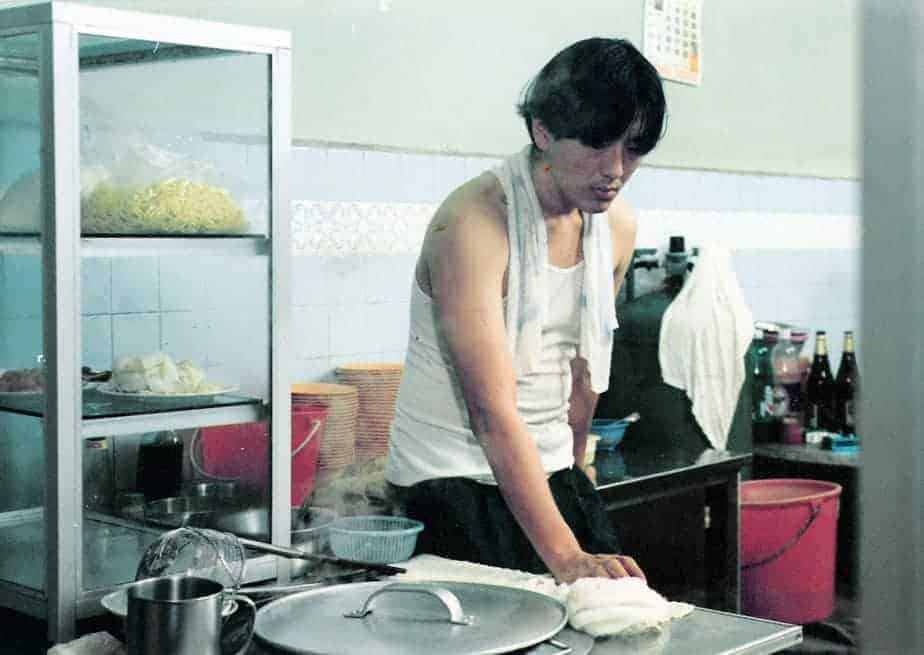
It's not just Johnny, but also Bunny, who is fitting in that construct. Her aspiration and dreams differ from the real emotional needs that her character has. She is blinded by commercials and money. Bunny's true self is revealed when her brother discovers her diary and reads it out loud. Now we realize that she is looking for the same thing as Johnny, love. Betrayed by many guys and aimlessly trying to finance her family, she is fed up with the prostitution job. Bunny became a victim of her customers and pimps. She was treated as a pure object and nobody cared for her emotions. Sadly, even in the end, she becomes an object for Johnny, who talks to her lifeless body.
“Mee Pok Man” offers no solution, only pain and solitude. Shot on a micro-budget in 16 days, the crew and the director accomplished an amazing result. Of course, there is a superficial portrayal of prostitution and the lower class, which is way too romanticized and especially the acting of the two lead actors, Joe Ng and Michelle Goh, is not convincing. Besides, the overall charm lies in the atmosphere and the striking pop-cultural references within the sequences. The pulp-like story was inspired by Damien Sin's “One Last Cold Kiss” (1994). In 2015, Eric Khoo dedicated his film “In the Room” to the deceased author.
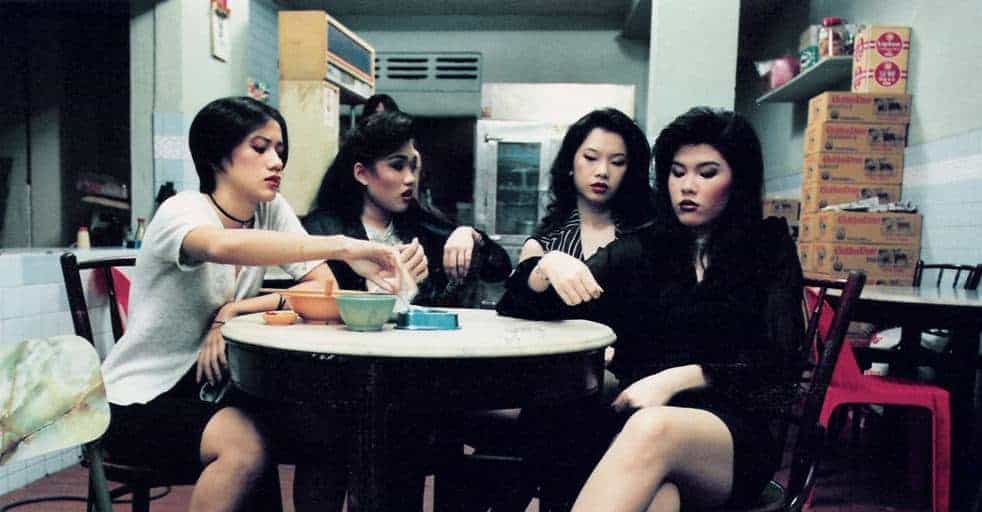
Among the most striking sequences are the fast paced opening titles edited to heavy metal music. Similiar to Takashi Miike's opening in “Dead or Alive” (1999) the movie puts the viewer in a state of high tension and uses the montage as a brilliant tool for a humoristic comparision between human beings and dead animals. The extraordinary usage on the auditory level is also “present” in an infamous sex scene between Johnny and Bunny, which captivates not only by images but also through total absence of sound.
So is it worth a watch? Definitely yes! Because “Mee Pok Man” offers unique insight, a contemporary document about life in Singapore at a certain turning point, which was also a critical moment for Asia in general. The incoming cultural wave from booming economies of Japan and the US changed the way people lived their lifes. In the tradition of Wong Kar-Wai and other directors of alternative Asian Cinema in the 90s, Eric Khoo's critic attacks the constant effort of growth by showing the people who are left behind in a clinical world.


